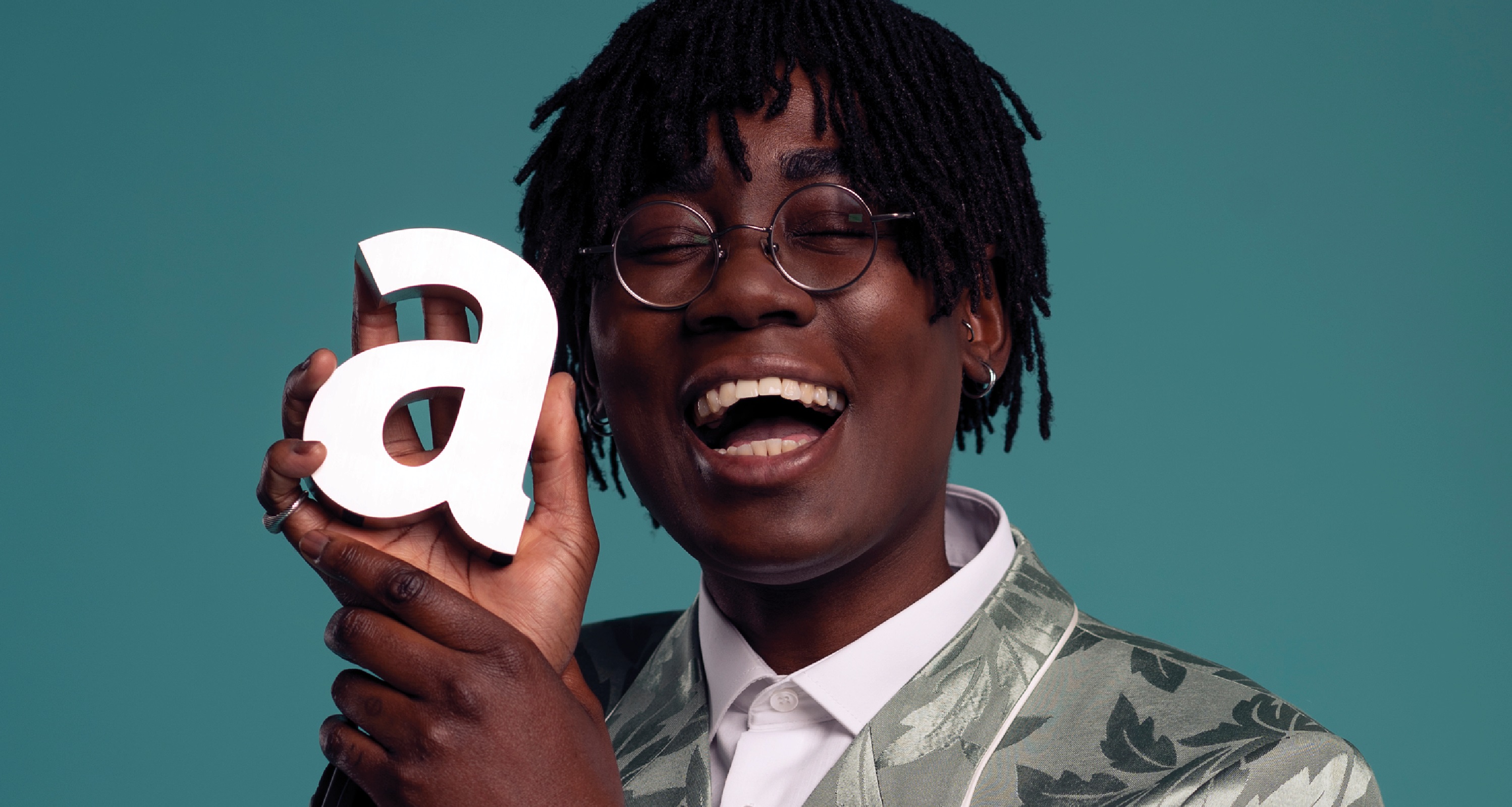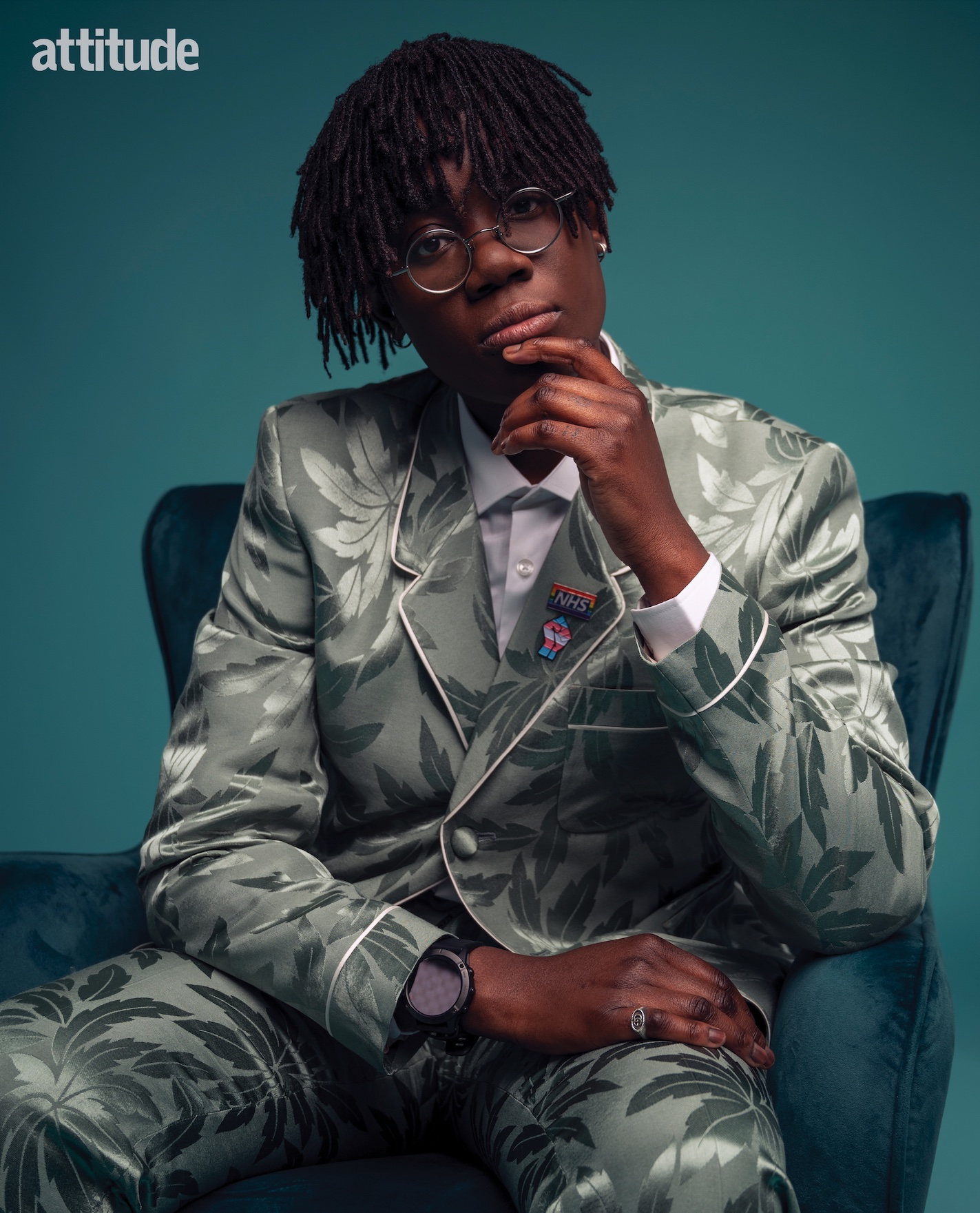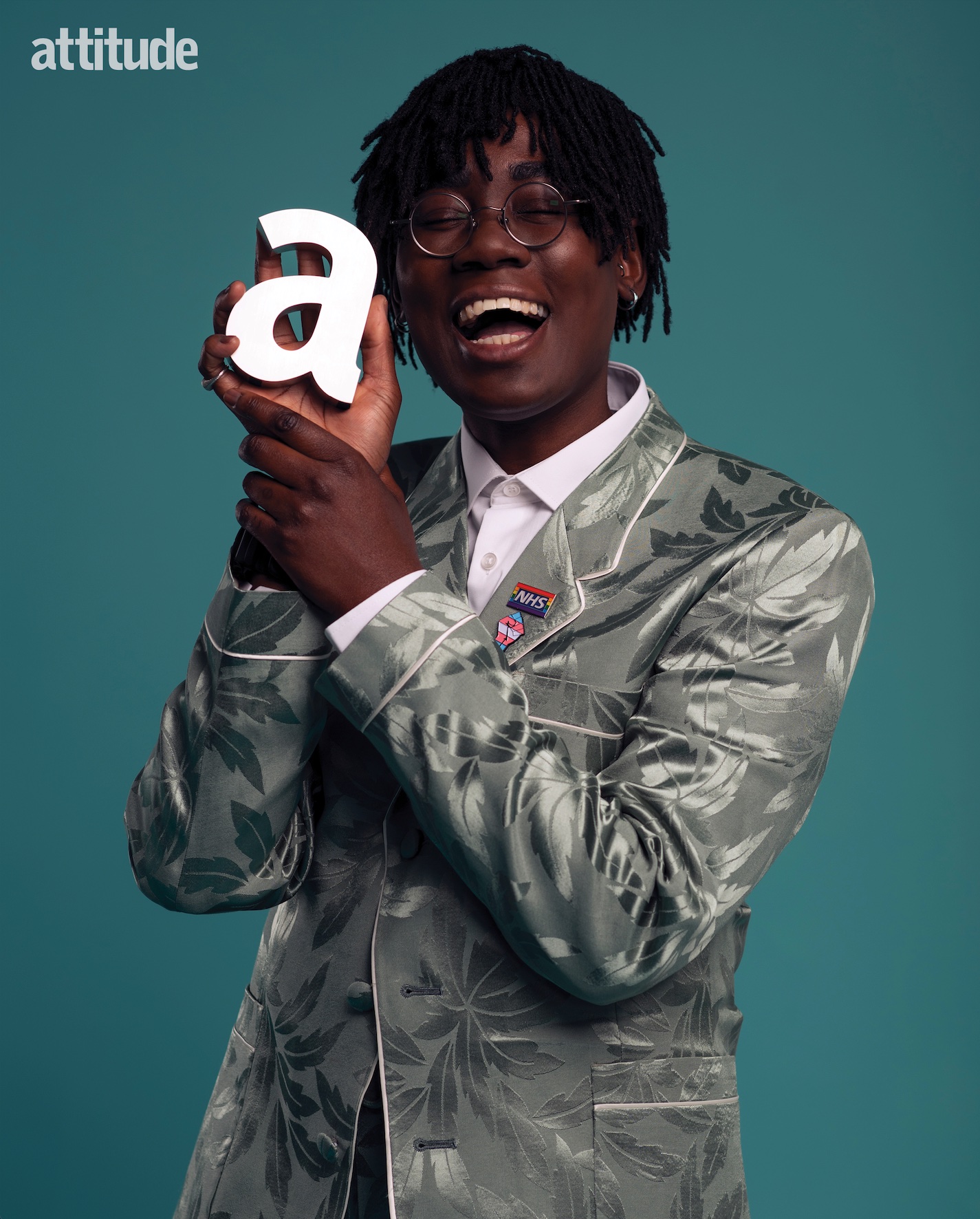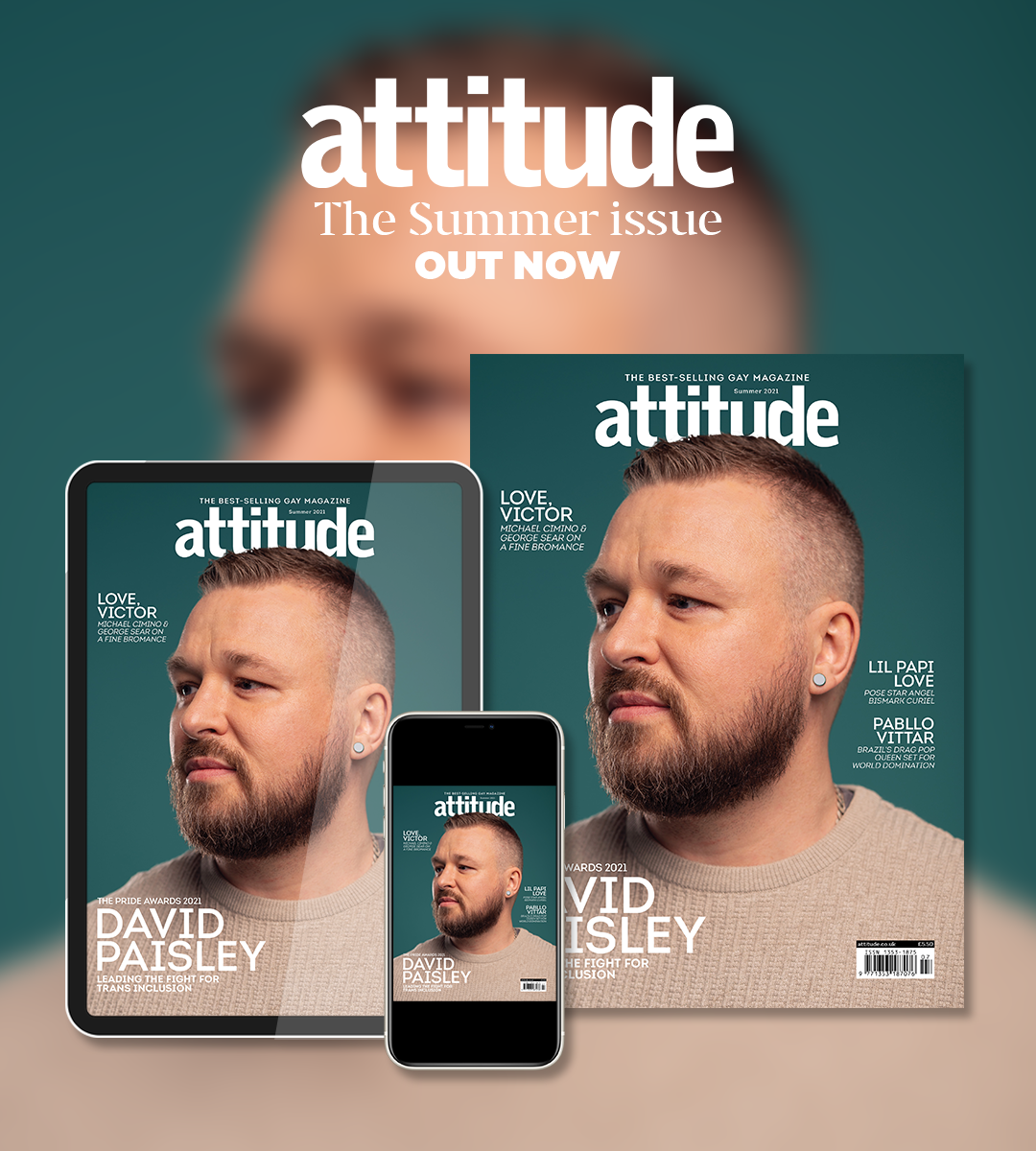Dr Ronx Ikharia: The trans non-binary doctor and TV presenter inspiring youth today
The medic is one of 10 everyday LGBTQ heroes honoured at the Attitude Pride Awards 2021, supported by Clifford Chance.

Interview: Thomas Stitchbury; pictures: Markus Bidaux
The Attitude Pride Awards, supported by Clifford Chance, are part of Attitude Pride at Home, in association with Klarna.
“You cannot be what you do not see” – this quote forms the bedrock of everything Dr Ronx Ikharia puts their mind to, from their ‘day job’ as an emergency medicine doctor, to their television presenting and community-focused work with young people. (And, with their taste for sharp suits, it is pretty hard to miss this super-smiley Doc).
“I want young Ronxs who are 12, who feel like their family doesn’t get them, who feel like they can’t achieve their dreams because they don’t tick the boxes that people recognise, who don’t feel comfortable with the way they look or identify, maybe they don’t think that they can be on TV – I want those people to look at me,” Ronx says. “I want those people to know that you can do it.”
Raised in south London, they self-funded their studies at London’s King’s College medical school after leaving the family home in their late teens. “I would describe my upbringing as difficult,” they confide.
“I would describe it as something that I’ve had to live with into my adulthood… I’ve had to unlearn some of the things which I used to survive, and I’ve also had to forgive things that have happened.”

“I don’t think I’ve processed all of the things that I’ve seen, heard and done”
They add: “I was fortunate enough to meet amazing people who saw a passion in me and helped facilitate my dreams to become a doctor. I owe everything that I am today to those people, and they know who they are.”
Based at Homerton University Hospital, in Hackney, where they have endured the most challenging year of their career – “I don’t think I’ve processed all of the things that I’ve seen, heard and done” – Ronx notes that they have always wanted to use their platform as a Black and queer person to inspire the next generation, using their spare time to volunteer for charities such as Hackney Quest, which supports local young people or to give talks at schools in the area.
“I remember one day being at work, in the A&E department, and this Black boy being, like, ‘Oh my God, you’re a doctor, I’ve never met a Black doctor before – and you’ve got dreadlocks and you’re wearing Nike Air Max!’ To see this kid’s face, that he honestly had never met a Black doctor before, I was, like, ‘Whoa, this is not normal,’” they recall.
“Those self-worth thoughts and feelings don’t come naturally.”
Ronx’s visibility increased when they made the leap onto the small screen as the host of (among other projects) CBBC’s Operation Ouch. “I meet young people who say, ‘I saw you on telly and was, like, I can be a doctor, too,’” they beam. “I had to take a deep breath, because I still feel like this 12-year-old kid that didn’t know themselves, felt unloved and not understood by society, and now I’m this 37-year-old who kids look up to.
“When you come from trauma, it takes a long time to really feel in your body and to big yourself up and be proud of yourself. Those self-worth thoughts and feelings don’t come naturally.”
Identifying as trans non-binary, Ronx had to sift through “a lot of nonsense” before realising that they were “tired of being seen as a gender”.
“People used to say, ‘Are you a boy or girl?’ And I would reply, ‘I’m just Ronx,’” they explain. “When I turned 36 in the pandemic, I decided that I was trans non-binary. Prior to then I’d had my chest surgery… My friends and colleagues were, like, ‘Listen, if you identify as they/them, just do it,’ and my agent said, ‘It’ll be fine, telly will have to catch up.’”
Ronx stresses that the broadcasters have been supportive – indeed, an episode of their BBC Three series The Unshockable Dr Ronx featured a segment on breast-binding.

“I only ever thought that I would be a doctor.”
“It was important for me in that show to be clear about how to do it safely and to show the world of trans non- binary people,” they maintain. “I just want the world to know that we exist. You may not get it, you may not like it, but it’s making space for us to exist on this spectrum of life.”
Ronx shrugs off the suggestion, too, that being an ambassador for their community is anything but a privilege: “When people ask, is it hard being trans non-binary on telly, in media? Is it hard having a voice? I say no, because everything that I am is a bonus. I only ever thought that I would be a doctor.”
They go on: “There are so many people who have got so much to give, but don’t have the, kind of, assertiveness that I do, that I feel annoyed for, because hearing ‘Who cares about trans people?’ ‘Who cares about racism? Isn’t racism dead?’ ‘Feminism, who needs feminism?’ – hearing all of that rhetoric as a young person is tough.
“Without visible role models, you can succumb to being, like, ‘What’s the bloody point if people are going to vote Trump? What’s the point if people are always going to have right-wing views? What’s the point if, when I go to work, I don’t see people that look like me? What’s the point if there are discriminatory policies and guidance that basically mean that my existence is harder than other people’s?’
“It’s those people that I think of when I do things like this,” Ronx asserts.
Read more about this year’s Pride Award recipients in the Attitude Summer issue, out now.
Subscribe in print and get your first three issues for just £1 each, or digitally for just over £1.50 per issue.

